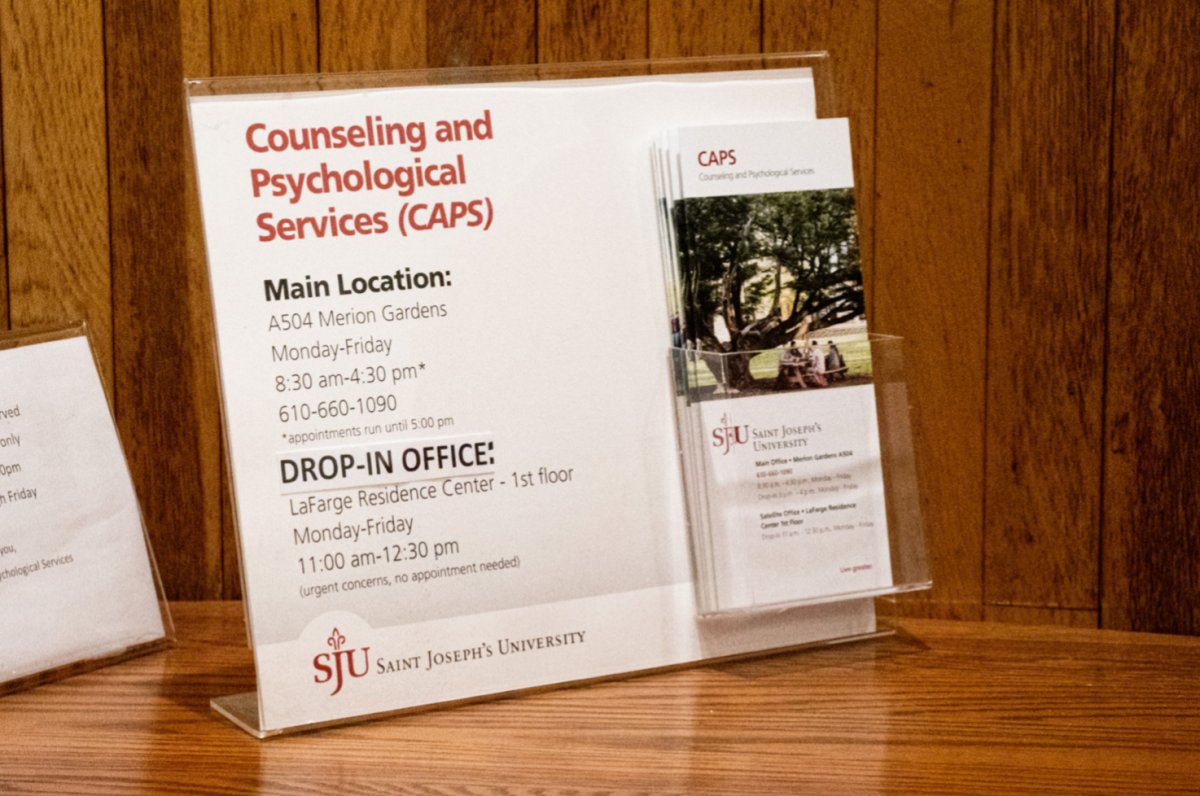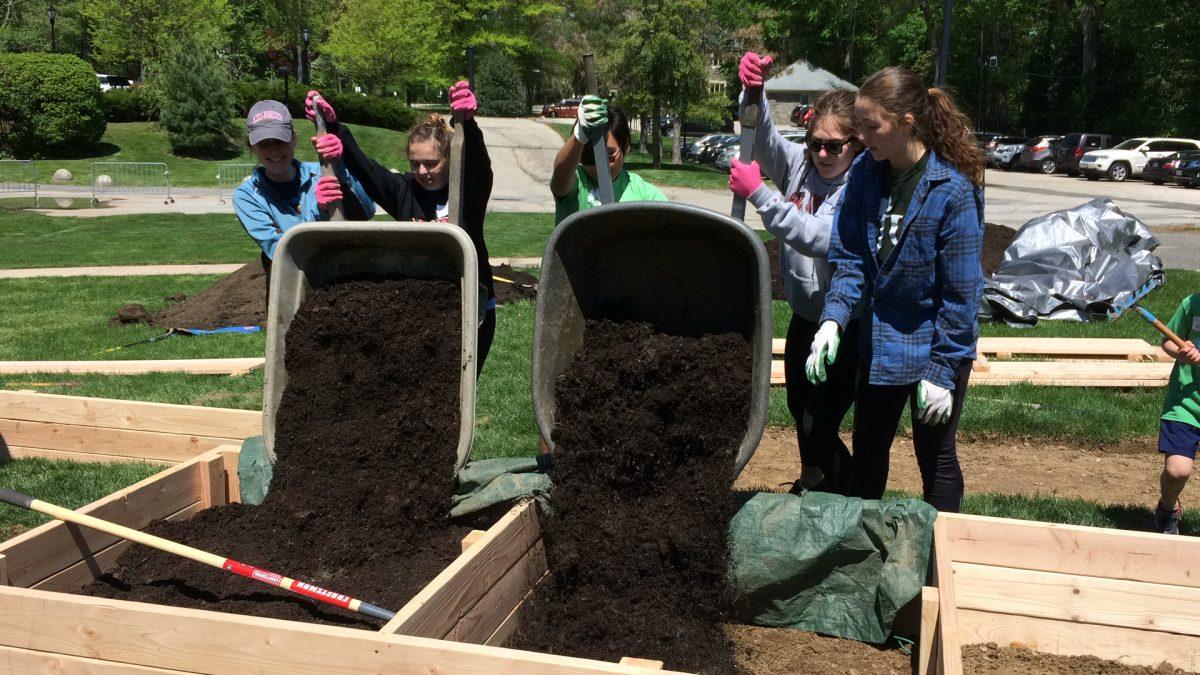To prepare for the 2020 growing season, the St. Joe’s Community Garden club came together to install cold frames to protect newly planted vegetables at its first event of the spring semester on Feb. 22.
The three cold frames placed into the garden beds, located on the northern side of Merion Hall, were designed to protect plants that may need extra help growing in cooler temperatures.
Madison Cassel ’20, associate director of the Community Garden, helped organize and lead the event. According to Cassel, it is necessary to begin planting in February because the vegetables the club plants need more time to grow.
“What we did was add more soil to the beds to get them ready and turned that soil over to aerate it,” Cassel said. “We also built these things called cold frames, which are tiny little houses that we put over the seeds to keep them warmer because they lock in air and help the seedlings grow better.”
The spinach, lettuce and kale that were planted last weekend will be protected by the cold frames until the last frost of winter. Peas and potatoes were also planted, but do not require the benefit of the cold frames, according to Cassel.

Clint Springer, Ph.D., director of environmental science and sustainability studies and associate professor of biology, serves as a faculty representative for the garden club. According to Springer, the garden’s harvest numbers from the 2019 growing season showed a trend of overproduction for what would normally be expected for organic production.
“They donated over 200 pounds of produce this year in a food desert,” Springer said. “I know that is literally not even a drop in the bucket, but it’s something. The hope is that as we keep going we can expand and perhaps do more, learn from whatever worked and didn’t work the year before.”
According to Dana Ortgiesen ’22, one of the club’s garden coordinators, all of the produce grown in the garden is harvested and donated to the local community through places like Martha’s Choice Marketplace, the Narberth Community Food Bank and the Visitation Nuns of Philadelphia.
“We’ve been really into helping local communities actually have access to fresh fruits and vegetables,” Ortgiesen said. “The volunteers there are all really sweet people who just want to do good for the community.”
One of the garden’s volunteer coordinators, Gia Picknally ’21, said St. Joe’s campus could be doing more to reduce its environmental impact.
“It’s a way for students to actually get dirty and get involved,” Picknally said. “It’s very rewarding to see all of the produce you get out of it, to know that it is going somewhere helpful and that we’re really making a difference. Trying to cut down on food waste is definitely something we can work on on campus.”
Elaine Estes ’19 harvested the majority of the yield from last year’s growing season during the summer months. Estes said giving back through donating produce to communities surrounding campus has a lasting impact.
“It was humbling for me to know that I could be self sufficient,” Estes said.

Garden club members said the garden’s success with their 2018-19 harvest has many of those affiliated with the club excited for the future.
“It makes me feel really good that we are able to do this with the space that we have and bring change to our community,” Picknally said. “I’m excited for this year because I think we’ve learned more about what we can do and what is better for the garden.”
Springer said he hopes the community garden could one day expand enough to become an urban farm. According to Springer, this could reduce the impact of nature deficit disorder, the idea that human beings are spending less time outdoors that results in a wide range of behavioral problems, on the community and help residents reconnect with where their food is sourced.
“We’ve had students come to campus from Philadelphia schools that don’t know that plants grow food because they’ve never experienced fresh food or they’d never seen it growing,” Springer said. “The hope is that we can expand and then do more community outreach where we can evolve and make it a true community garden and try to break down some of the walls that exist between our neighbors and ourselves here on campus.”














































